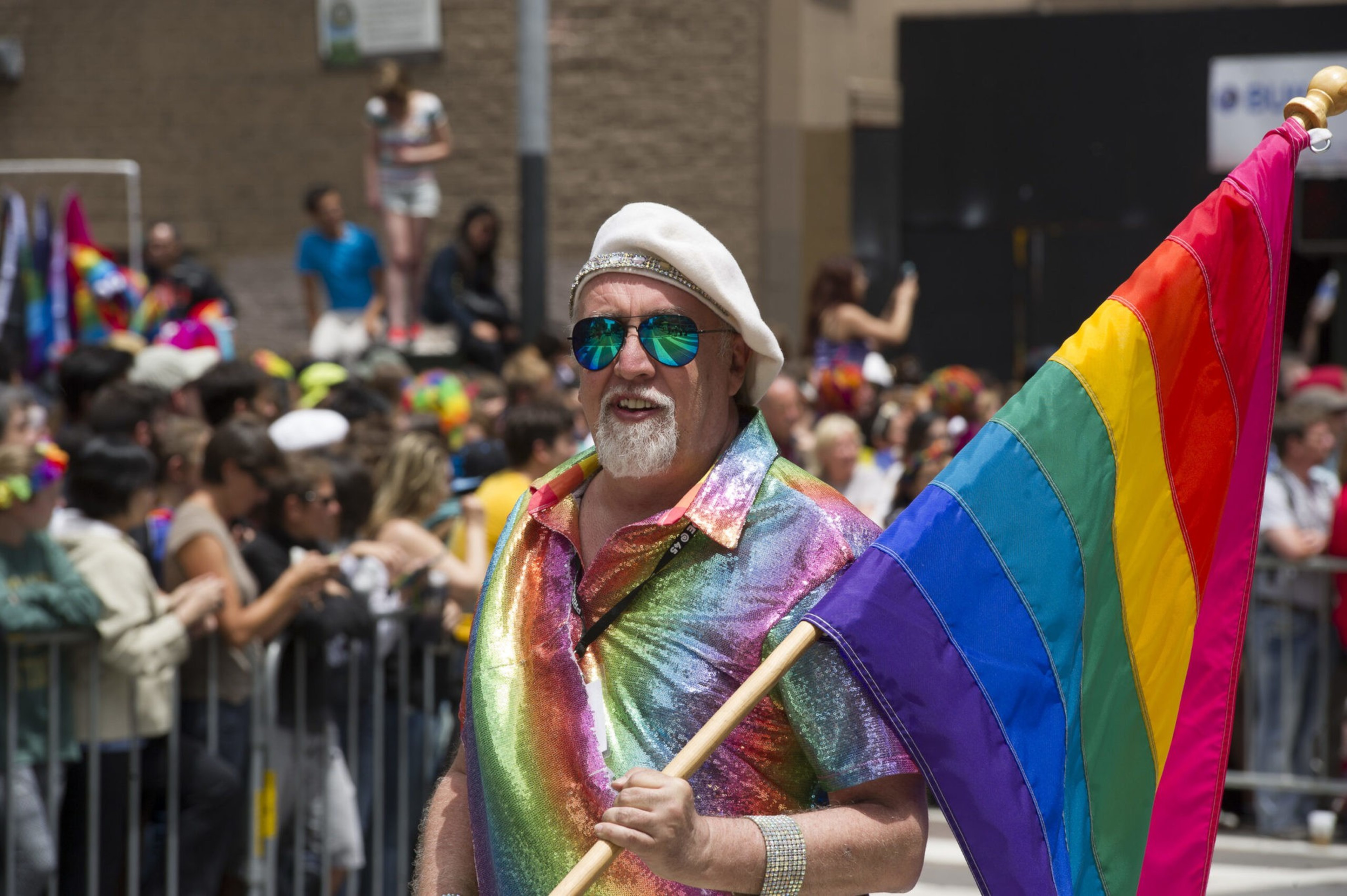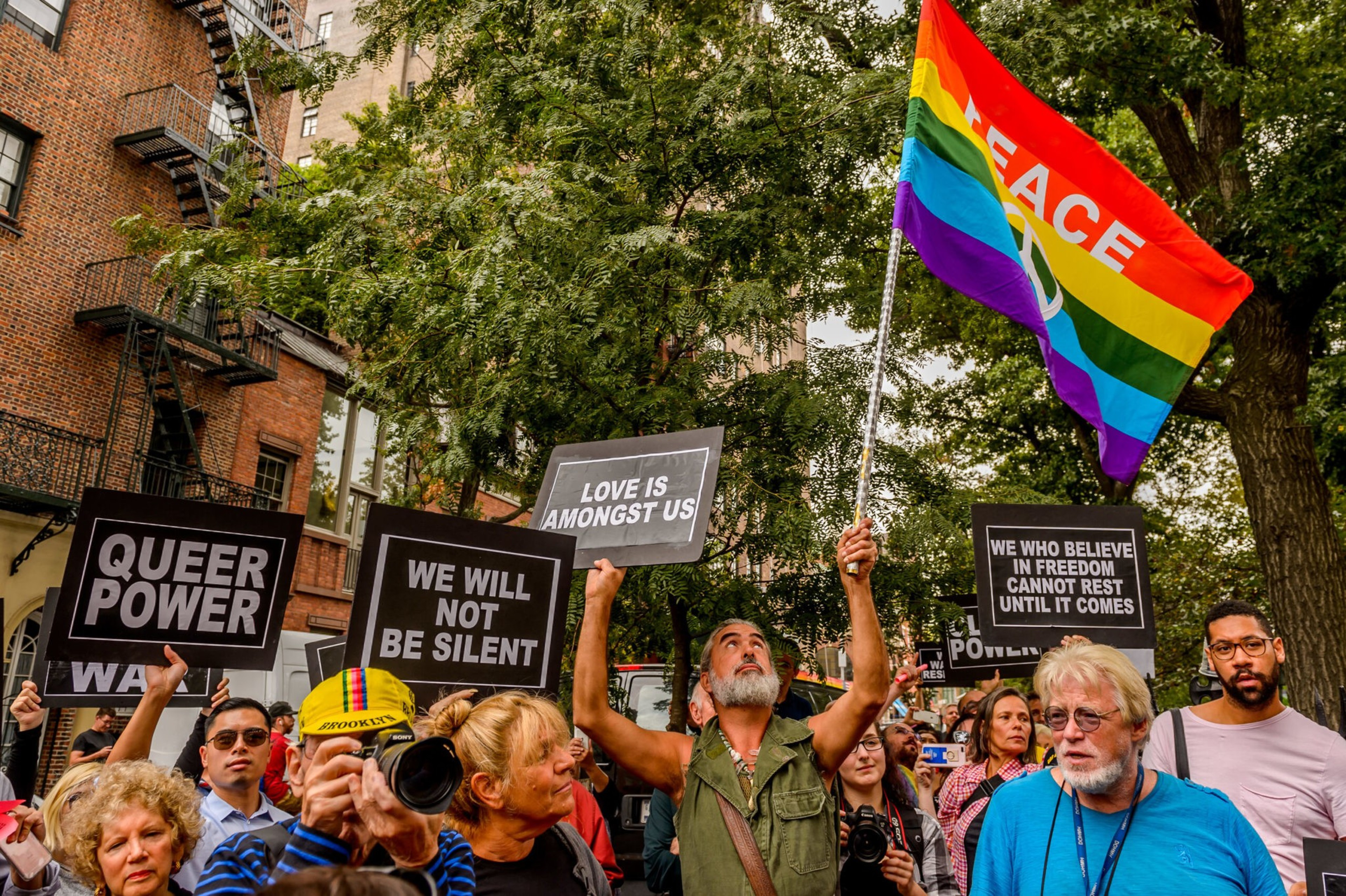It would be hard to imagine the Bay Area without the ubiquity of the rainbow flag, its bright colors flying with pride on homes and schools, bars and restaurants.
Yet in the face of increasing censorship, more than 15 communities across the country—from Cold Spring, New York, to Huntington Beach, California—have passed stringent regulations to remove all displays of the classic symbol of LGBTQ+ equality on public property.
“The creep of censorship is part of a larger scheme,” said Charley Beal, board president of the Gilbert Baker Foundation. “It’s not random.”
Such bans have taken hold in small towns where local leaders have caved to the bad-faith argument that if the pride flag can be flown, other flags—such as the Confederate battle flag—should be allowed too, Beal said. The GOP has sponsored a raft of anti-gay legislation (opens in new tab), encouraged by the extremism of representatives such as Marjorie Taylor Greene (opens in new tab).
When the bans began last summer in the upper-crust enclave of Cold Spring, New York, it spurred the Gilbert Baker Foundation (opens in new tab) to action. Gilbert Baker, an artist from Kansas who spent his adult life in San Francisco, created the rainbow flag back in the late 1970s. He wanted a more hopeful and expansive symbol for the gay community than the pink triangle, which represented the stigma of homosexuality during World War II.
“If anyone’s got to do something, it has to be us,” Beal said of the foundation. “They’re going after our symbols.”
In the face of the increasing bans, the Gilbert Baker Foundation joined forces with the American Civil Liberties Union to develop a toolkit (opens in new tab) that provides helpful documents and a step-by-step process for contesting bans of the rainbow flag.
“When I read the ACLU letter, it brought me to tears,” Beal said of the document that forms part of the toolkit (opens in new tab) the foundation created.
The Gilbert Baker Foundation website also includes space to self-report flag bans (opens in new tab), with a live map demonstrating the spread of the issue.

“We can’t fight them all on our own,” Beal said of the bans. “We need the public’s help.” Beal vowed to return to the town council of Cold Spring to help them fight.
The multipart, national campaign “Save the Rainbow Flag” gives concerned citizens fact sheets and tactics for how to challenge censorship efforts on the local level, through community hearings, media interviews, petitioning and mobilizing neighbors.
“The rainbow flag, ubiquitous around the world, is the most recognizable symbol of hope and diversity,” Beal said. “It’s also a symbol of power, and our enemies know that.”
The rainbow flag, born in San Francisco, is a global symbol of LGBTQ+ equality. The rapidly expanding bans on the flag demonstrate an increase in conservative censorship across the country, which includes mounting book bans, language restrictions (opens in new tab) and attacks on drag queens.
“People may not see it as large as it is,” Beal said. “But this is a concerted effort to put our community at risk, to put a target on our backs.”
